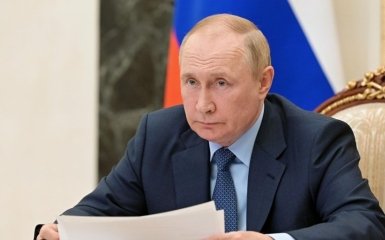ISW experts analyzed Putin's statements during his press conference on December 14. The Russian dictator used the event to discuss his goals in Ukraine and the specific concerns of Russian military personnel in a much more public and sustained way.
What Putin's statements during the conference show
Putin's willingness to devote a large part of his speech to the war in Ukraine indicates his growing confidence that he can address the Russian public on this issue, which, in turn, may indicate his belief in the Russian Federation's prospects in Ukraine.
Putin did not propose a new approach to the war, did not describe how the Russian Federation intends to achieve victory in Ukraine and did not specify what a Russian success would look like.
Many of Putin's statements from December 14 are similar to the clichéd statements about the Russian war in Ukraine that he made, for example, during a speech at a meeting of the board of the Russian Ministry of Defense almost a year ago, analysts say.
The report also notes that Putin did not describe exactly what changes to the Ukrainian Armed Forces would constitute "demilitarization." However, Russia's goal is almost certainly to deprive Ukraine of the means to defend itself and allow Russia to impose its will on Ukraine by force when the Kremlin so desires.
His calls for Ukrainian "neutrality" are demands for Ukraine to amend the Constitution, which currently obliges Ukraine to seek NATO membership and to commit not to join NATO or the European Union.
Putin once again expressed his reluctance to participate in negotiations with Ukraine and declared that there would be peace only when Russia achieved its maximalist goals.
ISW continues to assess that Putin's maximalist goals are tantamount to the complete capitulation of Ukraine and the West. These maximalist goals do not correspond to Ukraine's and the West's interests.
In addition, Putin has said that the Russian troop presence in Ukraine is much more significant than even Russian officials admit, likely in an attempt to both allay persistent Russian fears of a new wave of mobilization and demoralize the West and Ukraine.
What Putin said at the "Results of the Year" conference
Putin was first asked what he would do during another presidential term. The Russian dictator declared that he would work on "strengthening sovereignty."
He stated that over the previous decades, Russia allegedly "strengthened the margin of strength and stability in finance and economy."
Then the Russian dictator was asked when "there will be peace". According to Putin, there will be peace when all the so-called "SVO" goals are fulfilled.
Then he moved on to the traditional statements about "denazification", "Bandera is a national hero", and mentioned the invitation to the Canadian Parliament during the visit of Zelenskyy, 98-year-old Yaroslav Hunka, who turned out to be an SS veteran.
Putin also said that Russia does not need mobilization.
He added that the occupiers recruited 486,000 volunteers under the contract, and "the flow of our men who are ready to defend the interests of the homeland with weapons in their hands is not decreasing."
As usual, Putin began to blame the United States and Europe for the war, saying that the Russian Federation did not spoil relations with them, but on the contrary.
He mentioned the "coup" in Ukraine, declared that Ukrainians and Russians are supposedly one people, and called the war a "tragedy."
Then he began to call the south and east of Ukraine "historically Russian territories." he mentioned that Odesa is allegedly "a Russian city, and everyone knows it well".
According to Putin, the USA and Europe forced the Russian Federation to start a war against Ukraine, and he went on to accuse the USA of "imperial behaviour".



